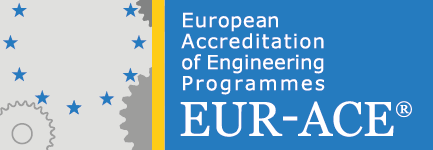Master's Degree Programme in Information and Communication Technology: Robotics and Autonomous Systems
The Robotics and Autonomous Systems specialisation track provides a competitive skillset and profound knowledge in the highly relevant field of Internet of Things (IoT) based smart and autonomous embedded systems, with the main application areas in mobile robotic systems and smart environments.
The Master’s Degree Programme in Information and Communication Technology provides versatile and high-quality ICT education in selected fields of ICT, with an established reputation in innovative interdisciplinary and international education. The programme has an international double-degree collaboration with the European Institute of Innovation and Technology (EIT) Master School. In the academic year 2025-2026, the programme offers the following specialisation tracks:
- Robotics and Autonomous Systems
- Cyber Security
- Cryptography
- Software Engineering
- Data Analytics
The Robotics and Autonomous Systems specialisation track educates professionals in various positions in research, development, and design in robotic systems and technologies such as autonomous robots and smart industrial IoT systems. The major prepares its students for challenging tasks from basic robotic operations like perception, mapping, and navigation to the design flow of autonomous and robotic systems. To be successful as engineers, students will work with real robots during their studies.
Entry requirements
General Requirement
You are an eligible applicant for Master’s-level studies if
- you have a nationally recognized first cycle degree – normally a Bachelor’s degree – from an accredited institution of higher education,
- your degree corresponds to at least 180 ECTS (European credits) or three years of full-time study,
- your degree is in a relevant field for the Master’s degree programme that you’re applying to. Please check the section on track-specific admission requirements for detailed degree requirements.
Language Requirements
Applicants must have excellent English language skills and a certificate that proves those skills. You can indicate your language skills by taking one of the internationally recognized English language tests.
Applicants must reach the minimum required test results to be eligible for the University of Turku. No exceptions will be made. Read more about the language requirements here.
Study right
It is not possible to have more than one Bachelor’s or Master’s study right at the same Faculty. Therefore, when accepting an offered study place, the student will lose any previous BSc. or MSc. study right at the Faculty of Technology at the University of Turku.
Before you start preparing your application, always read the full admission requirements on the application portal Studyinfo.fi
The applicant’s previous degree based on which s/he is seeking admission to the Master’s Degree Programme in Information and Communication Technology must be in a relevant field of study. Relevant fields of previous studies for the Robotics and Autonomous Systems specialisation track are:
- Robotics Engineering
- Computer Science
- Computer Engineering
- Information Technology
- Mechatronics
- Other relevant fields of study where sufficient knowledge of embedded systems and programming is achieved.
You may not apply to more than one specialization track within the same Master’s Degree Programme at the University of Turku. Therefore, you should carefully consider the suitability of your educational background for the applied track.
The decision of admission will be based on
- the relevance of the applicant’s awarded degree(s)
- the amount, relevance, and grades of the courses in the degree(s)
- the language test result (see Language requirements)
- the motivation letter and your answers to the programme-specific questions (instructed later)
- Curriculum Vitae including details on your academic and professional career
- possible relevant work experience
- possible interview
The academic evaluation is made only for complete applications received during the application period. Any preliminary assessment of suitability or chances for admission will not be given.
Programme in brief
A. Advanced-level studies in the major subject 50 ECTS
B. Thematic module or minor subject 20-25 ECTS
C. Other studies 15-20 ECTS
D. Master of Science in Technology Thesis 30 ECTS
The University of Turku fosters students' professional growth and global perspective by promoting internships and student exchanges. Every degree student can take advantage of these opportunities – all internships come with a guaranteed subsidy, and every exchange programme includes a grant.
Does this page answer your questions about the programme's content and academic matters? If not, contact infoscitech@utu.fi.
Upon completion of the Robotics and Autonomous Systems specialisation track, students will be able to design and implement hardware accelerators and embedded systems for different sets of sensors and data processing approaches. A student will understand the basic concepts of robotic perception, mapping, and navigation and acquire data from different sensors and convert it for visualization and analysis to be used with real robots. Students will be able to utilize different approaches for the design of control systems in robotics. In addition to technical content, the degree content also pays attention to other working life skills needed for example in a career as an expert, an entrepreneur, or a researcher.
In the Master's thesis, the student must prove his/her ability to do scientific work, master research methods, knowledge of the research field, and skills in scientific writing. In writing the Master’s thesis, the student needs to apply their technological skills, abilities, and expertise into identifying an engineering problem, studying its relevance to the field, proposing and designing a solution to the problem, testing and analysing the solution, and evaluating its usefulness. The thesis is often commissioned by a company, which means that an efficient and capable student could be directly employed by the commissioning company, which could lead to a successful career in the industry. On the other hand, a scholarly-oriented student might choose a thesis topic relating to the research conducted by a research group at the University and apply for the position of the doctoral candidate upon completion of an academically distinguished Master’s thesis. Research areas are multi-robot systems, autonomous robots, and edge computing. Further information here: https://tiers.utu.fi.
Topics of recently completed Master’s theses include:
- A Study on UWB-Aided Localization for Multi-UAV Systems in GNSS-Denied Environments
- Formation Control Algorithms With Limited or No Communication
- Neural Network Implementation of FPGA and Accuracy Comparison
- Introducing an Autonomous Warehouse with Multidimensional Movement Patterns and Collision Detection for AGVs
- Embedded AI and Human-Sensing in Intelligent Buildings
- VSLAM and Navigation System of Unmanned Ground Vehicle Based on RGB-D Camera
- Data Reduction Methods of Audio Signals for Embedded Sound Event Recognition
- Acoustic Data Transmission for Embedded Software Platforms
- Design and Implementation of UHF RFID Smart Readers
- An Intelligent Circular Economy Upstream Monitoring & Optimization System Based on Industrial Internet of Things
Career prospects
Embedded Intelligent systems are everywhere, increasingly so. There is an increasing need for highly skilled and creative engineers, system architects, specialists, and innovators in the autonomous and robotic systems industry in the Turku region, other regions in Finland, Europe, and globally.
The employment percentage of those holding an M.Sc.(Tech.) degree is high in Finland. Depending on the personal study plan of a student, the Robotics and Autonomous Systems specialisation track provides competence for a wide variety of jobs, to mention a few examples:
- embedded systems/solutions engineer/developer
- embedded systems R&D test engineer
- wireless embedded software engineer
- robotic systems software engineer
- Internet of things solutions architect
- hardware engineer
- automotive systems engineer
- autonomous vehicle systems engineer.
Master's Degree (Technology) provides eligibility for scientific postgraduate degree studies. Postgraduate degrees are doctoral and licentiate degrees. Degrees can be completed within the University of Turku Graduate School.



